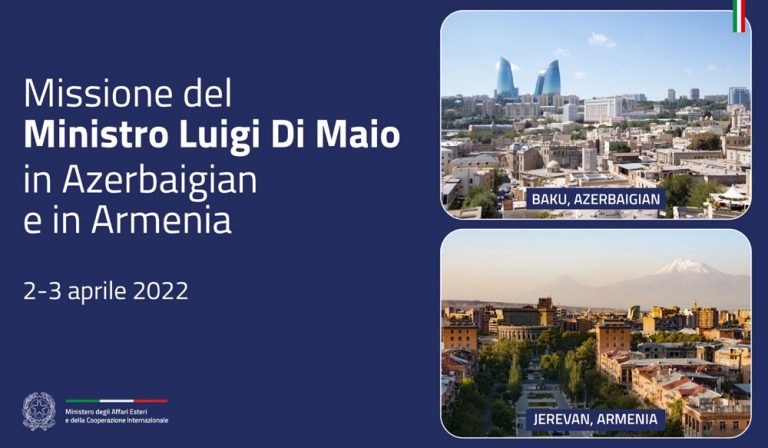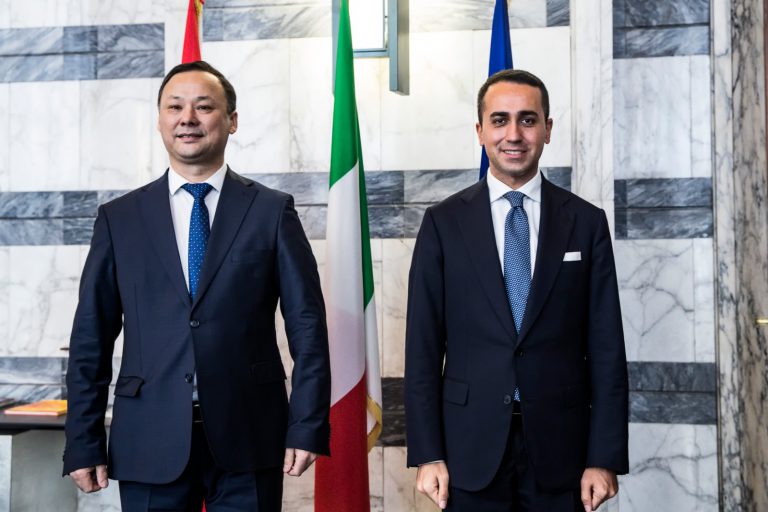Minister Luigi Di Maio, accompanied by Deputy Minister Manlio Di Stefano, travelled to Tashkent, in Uzbekistan, to chair the 2nd Italy-Central Asia Conference, in the 1+5 format (Italy + Kazakhstan, Kyrgyzstan, Tajikistan, Turkmenistan, Uzbekistan).
The Conference, organised with the Tashkent Authorities, after the restrictions imposed by the Covid-19 pandemic, has ensured continuity of the diplomatic action aimed at strengthening Italy’s presence in the region and in each of the 5 participating countries, adopting a regional approach that respects the specificities of each one.
The conference was attended by the Foreign Ministers of Kazakhstan, Kyrgyzstan, Tajikistan and Uzbekistan and the EU Special Representative for Central Asia, Ambassador Hakala. The Foreign Minister of Turkmenistan, unable to travel to Tashkent, sent a video message. The conference focused on the analysis of new opportunities and current challenges, with particular reference to Afghanistan, the development of economic and trade cooperation between Italy and Central Asia and the strengthening of international cooperation in the field of pandemic control.
On the Italian side, participants included the President of the National Institute of Public Health, Silvio Brusaferro; the President of ICE-Agenzia, Carlo Maria Ferro; the CEO of SIMEST, Mauro Alfonso, as well as senior officials from SACE, Confindustria and The European House Ambrosetti, who gave a presentation on “Italy is back on track: recovery, resilience and attractiveness”.
The economic session, moderated by the Uzbek Deputy Minister for Investment and Foreign Trade, Obidov, and by Deputy Minister Di Stefano, presented the key promotional and financial tools available to companies to further develop economic cooperation between Italy and Central Asia, while the session, dedicated to the fight against the pandemic, shared opportunities for training and research in the field of public health and healthcare.
On the sidelines of the event, Minister Di Maio met separately with his counterparts present at the Conference, with whom he discussed the main aspects of bilateral relations on the eve of the 30th anniversary of the establishment of diplomatic relations in 2022. It was agreed to strengthen existing partnerships across the board, with a priority focus on the political, economic and cultural dimensions. The Foreign Minister also had an in-depth exchange of views on Afghanistan, bearing in mind that, for geographical reasons, the countries of Central Asia are among those most exposed to the consequences of the crisis.
Last but not least, a round table was organised, opened by Deputy Minister Manlio Di Stefano, dedicated to scientific and academic cooperation between Italy and Central Asia, which formed an integral part of the conference. The event was organised by the Marco Polo Research Centre – Centre for Global Europe-Asia Connections – of Ca’ Foscari University of Venice and the International Institute Center for Global Europe-Asia Connections in Tashkent. Present on behalf of Italy were Professor Filippo Costa Buranelli of St Andrew’s University and member of the Central Asia and Caspian Observatory, Professor Stefano Pello of Ca’ Foscari University in Venice, Professor Maurizio Acciarri of Bicocca University in Milan, Professor Silvana Stefani of Sacred Heart University in Milan and Professor Carlo Frappi of the University of Venice. The round table, which was joined remotely by members of the Italian and Central Asian academic communities, discussed the issues of regional governance models; cooperation in the protection and promotion of cultural heritage; inclusive and sustainable development; and prospects for further development of academic cooperation.



